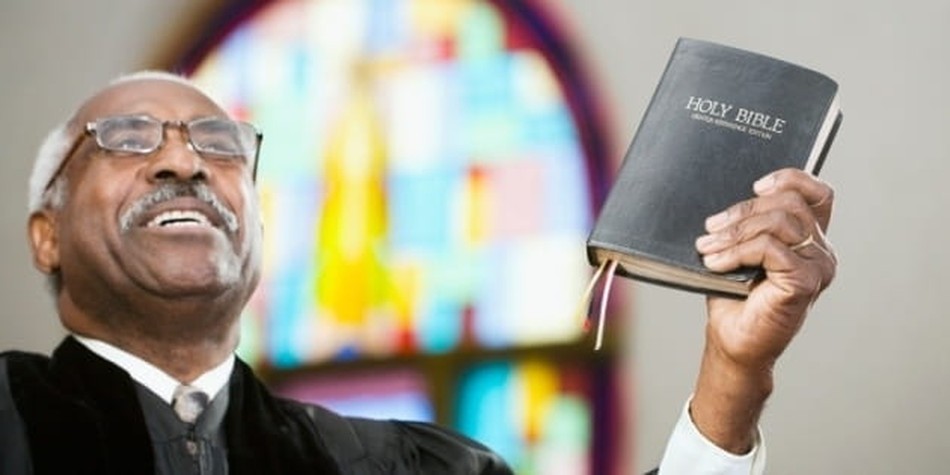“I will make them strong in the LORD, and they shall walk in his name,” declares the LORD. (Zechariah 10:12)
Another year, another church budget kicks in. For many churches, creating a budget is mostly a formality: What did we receive in offerings last year? What can we expect this year? How do we plan to spend it? It has always been a pet peeve with me that most churches run on a calendar year when it comes to their budget (January through December) while their “ministry year” runs September through June or July (not much happens in churches in August, apart from normal weekly activities). That means, among other things, that they’re planning activities for which they have not established a budget (the current budget running out in December, while the plan extends to June or July), and they’re spending money for which they have no plan (the current plan concluding in June or July, while the budget was made through December).
Either way, it’s not good stewardship.
For the vast majority of churches, what begins in September and ends in June or July is not very well planned. The annual plan of most churches simply reflects the previous year’s routine repeated with one or two changes or additions possibly included, depending on what comes along during the year. Very few churches set meaningful goals for their activities. If people come, and they seem happy, and we meet the budget, what more can you want? Let’s repeat the same thing next year.
This way of “doing church” does not reflect biblical thinking. It is devoid of any compelling vision. It tends to be driven by the people's interests or wants or the pastor's whims. It undertakes to achieve no clearly articulated Kingdom objectives. And it is limited by the prospects of members’ giving, rather than by the infinite resources of the Lord. The Lord’s view of His Church is much higher than that; and His view of pastors and church leaders who don’t take His view of the Church is not a little frightening.
The Lord’s Vision for the Church
Zechariah is only one of many prophets who envision a glorious future for the Church of the Lord. Using imagery of Israel’s restoration, expansion, and prospering, the prophets looked ahead to the day of salvation—the day of Christ’s coming—and prophesied visions of what God intended to do in and through His people. His purpose, as our text makes clear, is to create a strong and holy people who will fill the earth with the knowledge of His glory.
Let’s look closely at the Lord’s vision for His Church as it comes to us in Zechariah 9 and 10.
First, the Lord intends that His people should provide a living witness to His goodness and beauty: “On that day the LORD their God will save them, as the flock of his people; for like the jewels of a crown they shall shine on his land. For how great is his goodness, and how great is his beauty!” (Zechariah 9:16, 17). This vision of the Church as glorious, shining, and exalted is consistent with what we see elsewhere in the prophets (cf. Micah 4:1-5; Haggai 2:6-9) and the Psalms (cf. Psalm 48). It matches Jesus’ own words in Matthew 5:13-16 and those of Paul in Ephesians 2:19-22 and Peter in 1 Peter 2:9, 10. God doesn’t save His people only to leave them to muddle through in religious routines that impact no one for spiritual strength and holy living. Like the dew that brings refreshment to the earth, the Church is intended to water the world with God’s grace, in daily droplets of good works and words of truth that edify and nurture all around (Micah 5:7). But like the king of beasts, the Church is also intended for rule, to leave an impression, wherever it exists, of the righteousness, peace, and joy of God’s Spirit-ruled Kingdom (Micah 5:8; Romans 14:17).
Further, the Lord calls His Church to aspire to greatness in His name. He intends His people to be strong, like a mighty warrior, filled with gladness and joy, and raising up a generation of children who share their enthusiasm for the work of the Lord: “‘I will strengthen the house of Judah…[they] shall become like a mighty warrior, and their hearts shall be glad as with wine. Their children shall see it and be glad; their hearts shall rejoice in the LORD’” (Zechariah 10:6, 7). God’s vision for His Church is of a great army, fully armed, well-disciplined, clear as to its mission, and filled with zeal for the battle. God is gathering His people from all parts of the world, and every neighborhood of our communities, in order to equip them for the work of the Kingdom (vv. 8-10). He intends to fill up His churches with new recruits for the great Kingdom struggle to which He has called us (v. 10). And though His Church will meet with opposition and affliction, yet they will be strong, and will walk uprightly in the name of the Lord (vv. 11, 12).
Glorious, shining in goodness and beauty, strong and filled with gladness, drawing people in from all around, equipping young and old alike to take up the work of the Kingdom with joy, bursting at the seams, prevailing through trial and affliction: Is this the way we think of our churches?
To put the question more directly: Is this the way today’s pastors and church leaders think of the congregations they serve?
A Warning to Church Leaders
Like most of the prophets, Zechariah has some choice words of warning for those who lead the flock of the Lord. God consistently laid Israel’s failure to live up to her covenant prospects at the feet of shepherds who ignored His vision for His people and struck out instead in directions of their own (cf. Ezekiel 34:1-10). The Lord through Zechariah condemned leaders who pandered to the idolatrous inclinations of the day, spun out visions other than what the Lord had given them, failed to exercise vigilance over the well-being of the people, and preached things other than the plain Word of God (Zechariah 10:2, 3). The Lord’s anger was “hot” against such shepherds, and He resolved to punish them severely (v. 3).
Jesus said that no congregation would be able to rise above the level of its leadership (John 13:16). If today’s churches are failing to realize the Lord’s vision for them it can only be because their leaders have adopted some other vision to guide their lives and work. For most churches that vision can be summarized as “perpetuating the status quo indefinitely into the future.” Such a vision denies the plain teaching of Scripture concerning God’s will for His people. It fails to challenge the priorities and values of the followers of Christ, and encourages them to spend most of their precious time, energy, and resources on temporal rather than eternal things. Such a vision settles for a “good enough” approach to managing the affairs of God’s people instead of the “press on” attitude recommended by the Apostle Paul (Philippians 3:12-15). It leaves the church prey to the whim of the pastor and leaders rather than the will of God in Scripture. And it does not take seriously the requirement that every member of the Body find his or her proper place of service in building the Church and advancing the Kingdom of God (1 Corinthians 12:7-11; Ephesians 4:11-16).
If the leaders in your church are following a “status quo” approach to leadership, rather than one based on the Lord’s vision for His people, how can they—or the people they serve—expect anything other from Him than hot displeasure and severe discipline? He loves them too much to let them continue on a course other than that which He has determined for them (Hebrews 12:3-17).
The Leaders God Uses
The potential of local churches to make a Kingdom impact in their communities depends in large part on the faithfulness of their leaders. Zechariah tells us that God will judge those leaders who, by their ineptness, negligence, or outright disobedience, cause the people to languish and wander from His purpose and course. Then He will turn His attention to caring for His flock, delivering them from their wandering and affliction and leading them to fulfill His vision (10:3ff).
The Lord will establish them as strong battle steeds (Zechariah 10:3). Snorting, pawing the ground, straining at the bit, and bristling with strength and might, they will go into battle under their Lord, take their directions straight from Him, and draw on His courage and power against every foe. Surely the leaders of such a flock must be men whose zeal for the battle is intense and whose relationship with the Lord is very close and real. Church leaders whose spiritual disciplines are lackluster—especially daily time in the Word and prayer (Acts 6:4)—or whose time and energies are exhausted in pursuit of the business of the world will not be able to lead their churches to the greatness God intends for them.
Second, the Church shall be built upon a strong foundation—cornerstone, tent peg, and battle bow (v. 4)—by which the prophet means to refer to “every ruler” and “all of them together.” Jesus is the cornerstone of the Church, and the apostles and prophets are her foundation (Ephesians 2:20). The rulers and church leaders God uses must embody the life of Jesus and follow the example of the apostles as a visible demonstration of what the people of God are to become. This is why the Scriptures strongly emphasize the kind of men God approves for leadership in His churches (cf. 1 Timothy 3:1-13; Titus 1:5-9).
The Church and her leaders will assume the forefront of the battle against every foe (v. 5), as they bring every enemy of the Lord and His Church to heel. Whether that foe is the next lie spun out by the media or pop culture, the peccadillo du jour of the Christian community, or the devil himself, the leaders of the churches must not hesitate to take up the full armor of God, equip the saints for ministry, and confront the enemy head-on. Through instruction, church discipline, and activism of various kinds, the leaders must provide hand-to-hand engagement, as well as strategies, equipping, and vehicles to lead the people of God to overcome the gates of hell (Matthew 16:18; Ephesians 6:10-20).
The Lord promises to visit His people and establish their greatness in all the earth. And He will raise a new kind of leadership—leaders like Christ and His apostles—to accomplish this lofty vision.
A Plea to Church Leaders
As the New Year begins, let us plead with our church leaders to take up the Lord’s vision for His Church, and to submit themselves to becoming the kind of leaders God expects them to be. If the people of God demand God’s vision and leaders for their churches, we may begin to realize the promise of that vision for His Church. Then our churches will be better prepared to fulfill the vision of shining beauty, ferocious goodness, uncompromising holiness, and determined mission, that will make her “the joy of the whole earth” (Psalm 48:1-3). Pray that God will raise up leaders who embrace His vision and will lead us to take up our callings in the struggle for the Kingdom.
For Reflection
Ask the leaders of your church about their vision. Does it sound like God’s vision? Are they the kind of leaders likely to take your church to where God wants it to be? How might you help and encourage them?
T. M. Moore is dean of the Centurions Program of the Wilberforce Forum and principal of The Fellowship of Ailbe, a spiritual fellowship in the Celtic Christian tradition. He is the author or editor of 20 books, and has contributed chapters to four others. His essays, reviews, articles, papers, and poetry have appeared in dozens of national and international journals, and on a wide range of websites. His most recent books are The Ailbe Psalter and The Ground for Christian Ethics, (Waxed Tablet). He and his wife and editor, Susie, make their home in Concord, Tenn.



